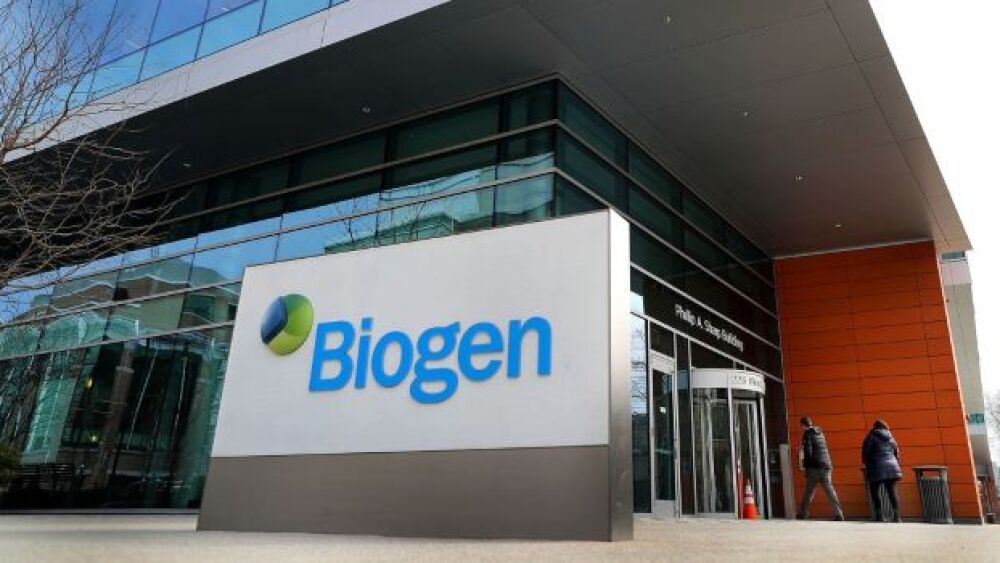Biogen and its partner Eisai Company released additional details about the Phase IV post-marketing study of the drug.
John Tlumacki/The Boston Globe via Getty
While the Centers for Medicare & Medicaid Services undergoes the comment period on its national coverage decision for Biogen’s controversial Alzheimer’s drug, Aduhelm (aducanumab), Biogen and its partner Eisai Company released additional details about the Phase IV post-marketing study of the drug. Dubbed ENVISION, the study is required under the conditions of the U.S. Food and Drug Administration’s Accelerated Approval of the drug.
As part of the Phase IV trial, the companies plan to enroll 18% of U.S. participants from African American and Latin populations as part of their ongoing commitment to increased diversity in clinical trials.
“Historically, patients from diverse backgrounds have been poorly represented in Alzheimer’s disease clinical trials, and we are committed to changing this,” said Dr. Priya Singhal, head of Global Safety & Regulatory Sciences and interim head of research & development at Biogen. “This goal matches the diversity among Americans diagnosed with early Alzheimer’s disease, while at the same time, the trial will generate substantial data to verify the effectiveness of Aduhelm.”
The study’s primary endpoint will be measured via the Clinical Dementia Rating-Sum of Boxes at 18 months after the beginning of treatment. This is a validated measure of cognition and function broadly used in clinical studies of early symptomatic Alzheimer’s and is consistent with the two Phase III EMERGE and ENGAGE trials. They also plan to increase enrollment from 1,300, which they had previously announced, to 1,500 patients with Mild Cognitive Impairment due to Alzheimer’s and mild Alzheimer’s disease, with confirmation of amyloid beta pathology.
They expect to initiate patient screening in May 2022. Based on previous studies, they believe it will take about four years to complete the study.
On January 12, 2022, CMS issued a draft national coverage decision for Aduhelm, which has negative consequences for Biogen and potential serious implications for any other biopharma company working on Alzheimer’s drugs. The agency said it would cover the cost of these drugs and any required scans, such as PET scans, only “if they are enrolled in qualifying clinical trials.” And furthermore, those trials would need to “demonstrate a clinically meaningful benefit in cognition and function.” It was a somewhat odd decision for an FDA-approved drug, although it recognized the controversial nature of the approval.
It was a decision met by controversy partly because of its implications for other drugs. A look at the comments supports the wide range of responses. For example, an in-depth response in a letter signed by about a dozen Alzheimer’s physicians at Vanderbilt University Medical Center, said, in part, “We write in support of Medicare coverage of aducanumab for symptomatic patients with confirmed amyloid beta in the brain. Failure to do so would be to deny patients and their doctors a reasonable and necessary option to manage a devasting disease.”
They went on to write, “Aducanumab trials have produced unequivocal evidence of the dramatic clearing of amyloid plaques from the brain. Genetic findings demonstrate that generation of the amyloid peptide drives the neurobiology of AD; all known genetic causes of the disease directly influence the accumulation of amyloid, and the rare protective gene reduces amyloid generation; the scientific evidence supports the judgment that reduction in amyloid plaque is likely to produce a clinical benefit.”
They also point out that since the FDA’s Advisory Committee initially met and voted against the drug, new evidence has been generated in support of efficacy and that they are convinced of the converging evidence associating amyloid removal to clinical benefits.
Another letter, by Dr. Rhonda Berney, a practicing geriatrician at West County Health Centers, recommended against approving “any medications in this class, including aducanumab until such medication is shown to meaningfully slow or arrest progression of Alzheimer’s disease using clinical tools. Many research tools can show statistically significant findings that do not translate into clinically meaningful change.”
David Burt, executive director of the Federal Government Affairs for Genentech, noted that the company has two anti-beta amyloid compounds in its pipeline, gantenerumab and crenezumab, and urged CMS to “prioritize the need for equitable access to anti-beta amyloid therapies for all eligible patients based on each drug’s respective FDA-approved label” and to “ensure broad access to all available diagnostic technologies to identify patients eligible for treatment with anti-beta amyloid therapies appropriately.”
A final decision by CMS is expected in late March or early April.





